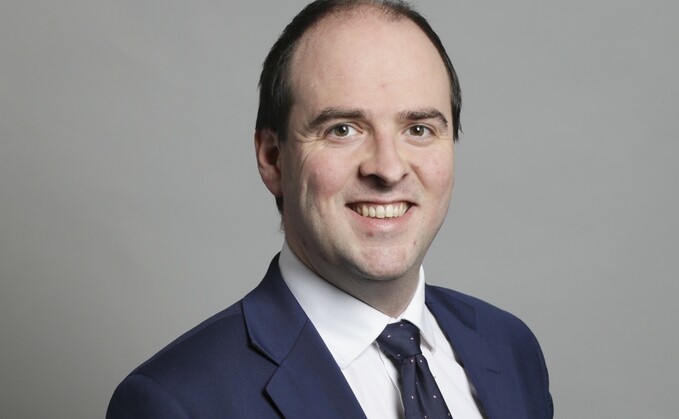
Richard Holden, MP for North West Durham. Source: UK Parliament
Conservative member of parliament Richard Holden is expected to use a private members’ bill this afternoon to urge policymakers to enact auto-enrolment (AE) changes.
Holden - the MP for North West Durham, one of the red-wall constituencies won by the Conservatives in 2019 - is due to urge the government to lower the age at which workers are auto-enrolled into a pension from 22 to 18 and to scrap the £10,000 earnings threshold so lower earners are included in the reforms.
A report published by think-tank Onward today (5 January) suggested the measures - combined with ditching the earnings band so every pound earned qualifies for a matched employer contribution - could boost pension savings by almost £2.8trn.
The government had previously committed to lowering the minimum AE age to 18 and scrapping earnings bands by the "mid-2020s" following the 2017 AE Review.
Insurer Aviva worked with Onward on its proposals and called on the government to "put a plan in place now" for how and when it will implement the changes.
Aviva director of workplace savings Emma Douglas said: "The current auto-enrolment system disproportionately disadvantages younger workers, part-time workers, and those with multiple lower-paid or part-time jobs.
"These proposed changes to AE could make a real difference to the future retirement plans of today's lower-paid and part-time workers as everyone who is in a pension scheme will get a contribution from the first pound they earn. However, the target date of mid 2020s can only be achieved if a roadmap is agreed now. Employers and employees need time to plan. The clock is ticking and the longer it does, the less there will be in the pension pots for those who might need it most."
Aviva calculated that abolishing the lower qualifying earnings threshold would increase total pension contributions by £9.60 per week for everyone who earns more than £6,240 a year - an amount that could mean up to an extra £115,700 in pension pots at retirement.
Additional pension pot at retirement, by age
|
Age when lower qualifying earnings threshold is abolished |
Additional pension pot at 68 years old |
|
18 |
£ 115,700.00 |
|
22 |
£ 94,000.00 |
|
25 |
£ 80,000.00 |
|
30 |
£ 60,500.00 |
|
35 |
£ 45,000.00 |
|
40 |
£ 32,700.00 |
|
45 |
£ 23,000.00 |
|
50 |
£ 15,400.00 |
|
55 |
£ 9,600.00 |
|
60 |
£ 5,000.00 |
|
65 |
£ 1,620.00 |
Source: Aviva
Reaction
Pensions Management Institute director of policy and external affairs Tim Middleton praised Holden's motion.
He said: "The changes that Richard Holden is seeking to introduce were to form part of the reforms to AE due to be implemented this decade, but he is to be congratulated for recognising the urgency needed to drive current pensions policy and for seizing the initiative now.
"It is hugely encouraging that one of parliament's younger members should be prepared to take such a bold approach to pensions saving, when most politicians are preoccupied with other matters."
AJ Bell head of retirement policy Tom Selby said the reforms would significantly boost pension savings and bring millions more people into the pension system but warned they would come at a cost to business.
He said: "Given the significant strain many firms have been under for the last two years as a result of Covid and the subsequent national lockdowns, laying extra pension costs at their doors now might risk subduing the UK's economic recovery. Waiting a year or two so that, hopefully, the economy is a little less fragile may well be the preferred option."
A Department for Work and Pensions spokesperson said: "AE has succeeded in transforming pension saving, with more than 10 million workers enrolled into a workplace pension to date and an additional £28.4bn per year being saved since 2012.
"The government's ambition for the future of automatic enrolment will enable people to save more and to start saving earlier by abolishing the lower earnings Limit for contributions and reducing the age for being automatically enrolled to 18 in the mid-2020s, benefiting younger people, low-paid and part-time workers as they will receive contributions from their employer from the first pound earned. We want to make sure that these changes are made in a way and at a time that is affordable, balancing the needs of savers, employers and taxpayers."







